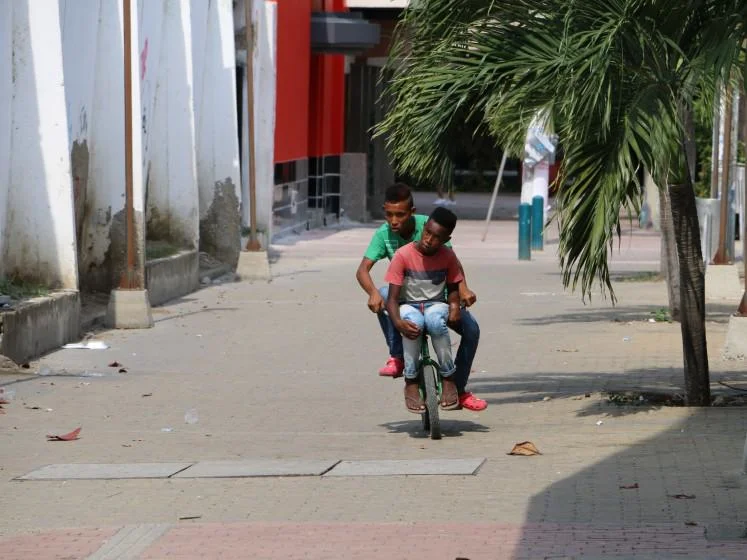Direct cash payments to young people could help mental health during COVID-19

Vulnerable young people living in poverty in Low- and Middle-Income Countries should receive direct cash payments to help mitigate the effect of the COVID-19 pandemic on their mental health, as well as to provide for their most urgent and basic needs, urges a team of international researchers led by LSE's .
In an article (1) led by Annette Bauer, published in the journal Lancet Psychiatry , researchers from the Chances-6 (1) project point to evidence which suggests that Cash Transfer Programmes (CTPs) can improve mental health and reduce suicide rates among young people.
The way these programmes achieve these results is not yet well understood but may be related to reduced household stress, increased opportunities for leisure time and building social connections and the increased self-confidence, self-worth and hope that comes along with being able to go to school and buy and do things they could not afford before.
The researchers outline that there is currently an opportunity to extend CTPs to young people (aged 15 to 24), including those with mental health conditions, because many social programmes are being updated or expanded because of the pandemic.
They note that young people with mental health problems are often not specifically targeted by social programmes. Those programmes that do focus on vulnerable young people often do not target their mental health-related needs and, in the case of CTPs, money is usually given to the primary care giver rather than the young person directly.
Dr Sara Evans-Lacko, one of the article’s authors and Associate Professorial Research Fellow at LSE, said: "Understandably, during crises, policy makers prioritise the most immediate concerns, such as providing food and medical care to those at risk of malnutrition and physical illness. But we need to take a long-term approach, through interventions such as direct cash payments to young people, if we are going to break the cycle of poverty and poor mental health.
"To put it into a macro perspective, young people make up one fifth of the total populations in LMICs, which means the impact of the current crisis could strongly influence these nations’ future growth."
The researchers write that young people may be especially vulnerable to the impacts of crises, such as pandemics, because they are more likely to take high risk jobs, in which they experience violence and exploitation, and that they are more likely than others to experience long-term unemployment after an economic crisis. They are also much less likely to have financial savings or other assets that help them mitigate the impact of the crises.
Evidence from pandemics shows that being confined to a small space and not being able to maintain school and regular social connections can lead to various negative mental health impacts for young people. These are exacerbated for those with existing mental health conditions and those living in poverty.
One example of a CTP that addresses the mental health related needs of young people is ‘Jóvenes en Acción’ (‘Youth in Action’) in Colombia. It offers direct monthly payments to young people for attending and completing education programmes which include modules focusing on mental health.
The researchers’ other recommendations in the article are that:
- CTPs explore the provision of resources to support mental health and non-stigmatising information about COVID-19.
- CTPs should consider opportunities for increasing access to mental health support for young people.
- Evaluations of CTPs should include an assessment of their mental health impact.
- Mental health impacts should be considered when making decisions about the amount, duration and administration of CTPs. For example, irregular payments can lead to increased stress among youth, and longer duration of payments may reduce depression among young people.